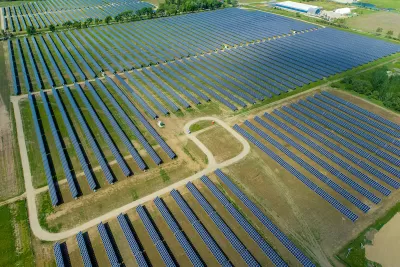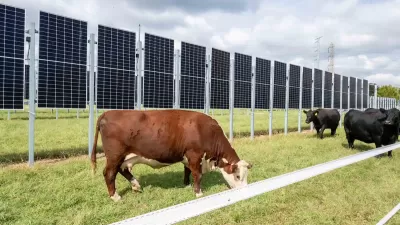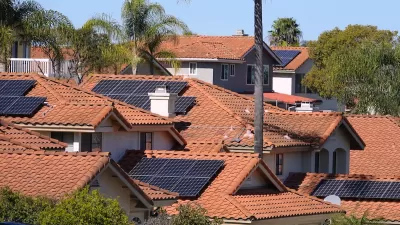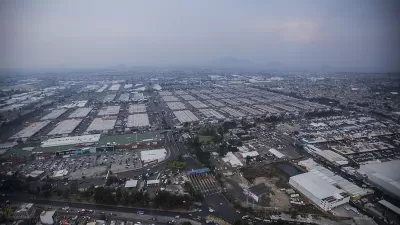Solar installations are causing soil erosion and raising concerns among farmers in some of the nation’s most productive agricultural regions.

“A renewable energy boom risks damaging some of America's richest soils in key farming states like Indiana, according to a Reuters analysis of federal, state and local data; hundreds of pages of court records; and interviews with more than 100 energy and soil scientists, agricultural economists, farmers and farmland owners, and local, state and federal lawmakers.”
As P.j. Huffstutter and Christopher Walljasper explain, in addition to shifting thousands of acres from farming to solar production, “Common solar farm construction practices, including clearing and grading large sections of land, also can lead to significant erosion and major runoff of sediment into waterways without proper remediation, according to the U.S. Environmental Protection Agency and the Justice Department.”
These practices are putting productive areas of farmland out of commission, causing concern about the future of U.S. agriculture as the demand for solar energy grows, which is projected to require up to 5 percent of each state’s land area. “By 2050, to meet the Biden Administration's decarbonization targets, the U.S. will need up to 1,570 gigawatts of electric energy capacity from solar.”
FULL STORY: As solar capacity grows, some of America's most productive farmland is at risk

Planetizen Federal Action Tracker
A weekly monitor of how Trump’s orders and actions are impacting planners and planning in America.

Chicago’s Ghost Rails
Just beneath the surface of the modern city lie the remnants of its expansive early 20th-century streetcar system.

San Antonio and Austin are Fusing Into one Massive Megaregion
The region spanning the two central Texas cities is growing fast, posing challenges for local infrastructure and water supplies.

Since Zion's Shuttles Went Electric “The Smog is Gone”
Visitors to Zion National Park can enjoy the canyon via the nation’s first fully electric park shuttle system.

Trump Distributing DOT Safety Funds at 1/10 Rate of Biden
Funds for Safe Streets and other transportation safety and equity programs are being held up by administrative reviews and conflicts with the Trump administration’s priorities.

German Cities Subsidize Taxis for Women Amid Wave of Violence
Free or low-cost taxi rides can help women navigate cities more safely, but critics say the programs don't address the root causes of violence against women.
Urban Design for Planners 1: Software Tools
This six-course series explores essential urban design concepts using open source software and equips planners with the tools they need to participate fully in the urban design process.
Planning for Universal Design
Learn the tools for implementing Universal Design in planning regulations.
planning NEXT
Appalachian Highlands Housing Partners
Mpact (founded as Rail~Volution)
City of Camden Redevelopment Agency
City of Astoria
City of Portland
City of Laramie





























